Can I eat eggs after nose surgery? How long until I can eat eggs?
Beauty secrets
Dec 26, 2024
Dec 26, 2024
Nose lifting has become a beauty trend chosen by many people to improve their appearance. However, not only is the wound care process emphasized, but diet is also very important during the recovery process. So, can one eat eggs after a nose lift since this is one of the foods good for health? Let's explore this issue and see if eggs really provide benefits in beauty.
Nose lifting has become a beauty trend chosen by many people to improve their appearance. However, not only is the wound care process emphasized, but diet is also very important during the recovery process. So, can one eat eggs after a nose lift since this is one of the foods good for health? Let's explore this issue and see if eggs really provide benefits in beauty.
Nose lifting has become a beauty trend chosen by many people to improve their appearance. However, not only is the wound care process emphasized, but diet is also very important during the recovery process. So, can one eat eggs after a nose lift since this is one of the foods good for health? Let's explore this issue and see if eggs really provide benefits in beauty.
1. Can I eat eggs after nose surgery?
Nose surgery is a common cosmetic procedure, and the diet after surgery plays an important role in the recovery process. Eggs are a nutrient-rich food, especially high in protein, which has many health benefits. So the question arises: can I eat eggs after nose surgery?
The answer is: Doctors advise you not to eat eggs, especially duck eggs, balut, and quail eggs during the recovery period. Although eggs provide lecithin that helps detoxify the body, they can also have negative effects on the wound, such as increasing the risk of hypertrophic scars and causing the newly healed skin to be darker than the surrounding area. This can affect the aesthetics of the nose after surgery.
Therefore, adhering to a proper diet will help the wound heal quickly and achieve the best aesthetic results.
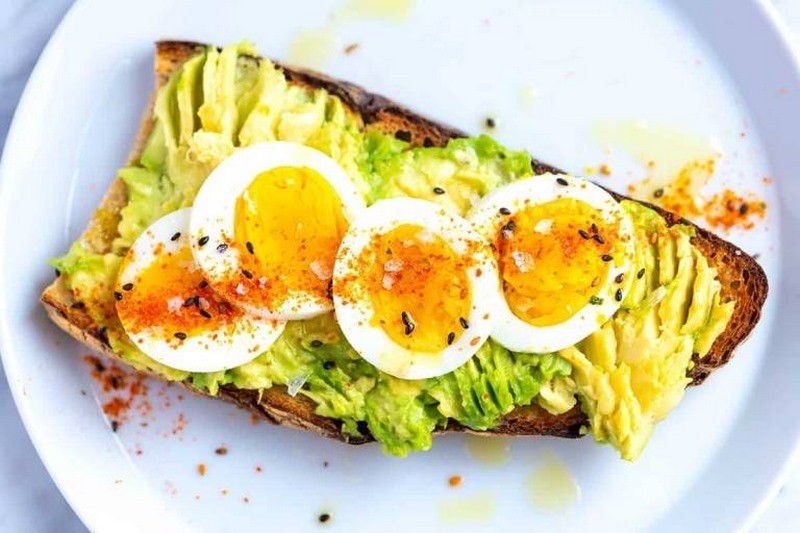
2. Why should I avoid eating eggs after nose surgery?
After answering the question can I eat eggs after nose surgery, let's look at the reasons why it is crucial to avoid eating eggs after nose surgery.
2.1 Nutritional reasons
Eggs are a source of high-quality protein, which is very beneficial for tissue regeneration. However, consuming too much protein in the early stages of recovery can stimulate the regeneration process too quickly. This may lead to uneven healing skin, compromising the aesthetic appearance of the face.
Some components in eggs can irritate the wound. When the wound is irritated, healing will slow down, potentially leading to infection or other complications.
2.2 Risk of swelling and inflammation
Eggs, especially chicken eggs, can increase inflammation levels if the body does not digest well after surgery. Eating eggs may cause prolonged swelling, affecting the aesthetic results of the surgery. Swelling can cause discomfort, pain, and reduce mobility in the nasal area. This not only affects health but also the patient's psychology during the recovery phase.
2.3 Impact on overall health
Eating eggs soon after surgery can lead to other risks such as allergies or inflammatory reactions, affecting overall health. Some people may experience symptoms like itching, rashes, or difficulty breathing. Therefore, during the recovery period, allergy can add stress to the body, slowing down the recovery process.
After surgery, the digestive system may be more sensitive than usual. Eating eggs can cause difficulty digesting, leading to issues such as bloating, indigestion, or even diarrhea. These issues not only cause discomfort but also diminish overall health.
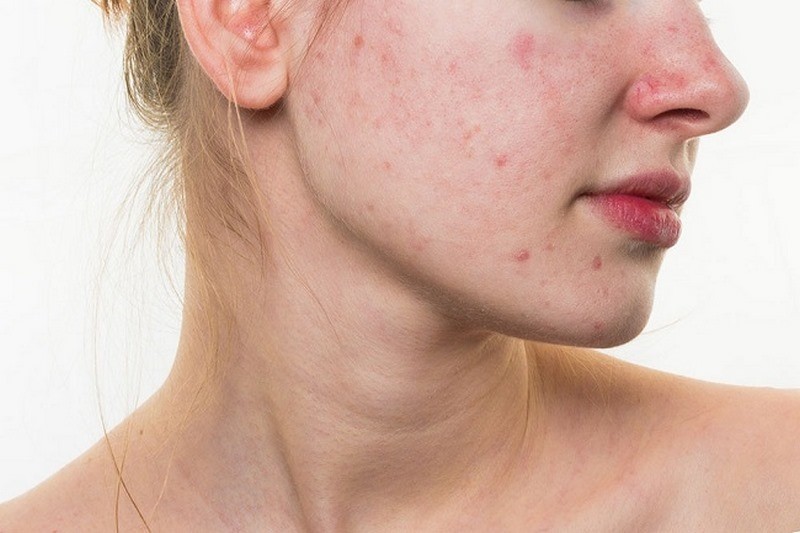
3. When can I eat eggs after nose surgery?
After nose surgery, each person will have a different timeline for avoiding eggs. These depend on individual constitution and recovery ability, specifically:
For people with non-scar-prone constitution: If you belong to this group, the wound after nose surgery will heal faster. You can start incorporating eggs into your diet after about 3 weeks. However, when you start eating eggs, begin with small amounts and monitor your body's reactions. If there are no signs of irritation or discomfort, you may gradually increase your intake.
For those who are prone to scarring: If you are prone to hypertrophic or dark scars, avoid eating eggs for at least 1 month after surgery to avoid affecting the healing process. This helps minimize the risk of scar formation and supports creating more evenly toned healing skin, thus improving aesthetic results after surgery.
4. Foods to eat to support recovery after nose surgery
To promote wound healing after nose surgery, it is essential to provide the body with adequate nutrients. Here are the foods to add after nose surgery:
Protein-rich foods
Protein-rich foods are crucial for cell regeneration and wound healing support. They help build and repair tissues, strengthening the immune system. Foods to include are: lean meats (chicken, beef), fish (salmon, tuna), beans (green beans, black beans), milk and dairy products (yogurt, cheese).
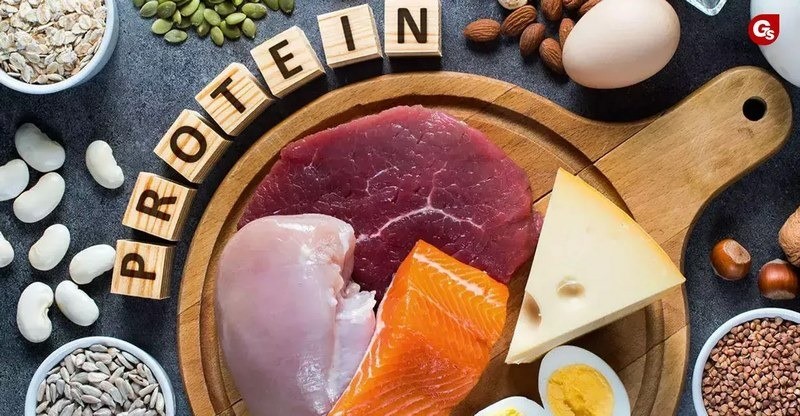
Green vegetables and fruits
Green vegetables and fruits are rich in vitamins and minerals, especially vitamins C, A, and E. These vitamins help enhance the immune system and support the wound healing process. Leafy greens (cabbage, spinach,...) and fruits (oranges, kiwis, strawberries, avocados,...) are the foods you should add to your daily diet.
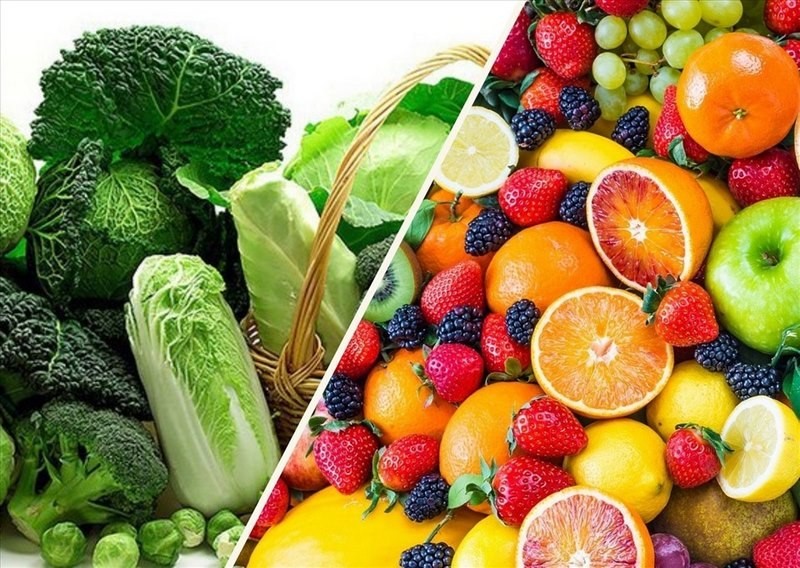
Seeds and whole grains
Seeds and whole grains provide energy, fiber, and various B vitamins necessary for the body, helping maintain health and energy during the recovery process. You should choose foods like: whole grains (oats, brown rice) and seeds (chia seeds, sunflower seeds) in daily meals during recovery after nose surgery.
Omega-3 rich foods
Omega-3 helps reduce inflammation and promote recovery, which is very beneficial for healing wounds. Salmon, flaxseeds, walnuts,... are foods rich in omega-3, so be sure to include them in your list of foods to consume during this period.
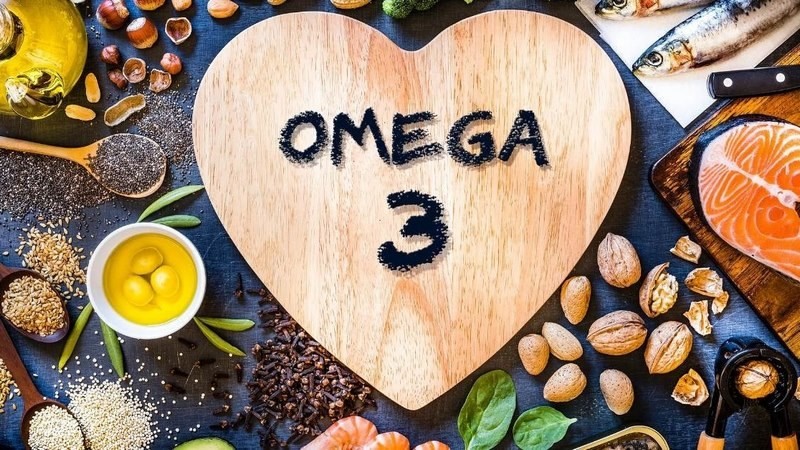
Easy-to-digest foods
Soft, easy-to-digest foods prevent the body from overworking during digestion, facilitating recovery. Some foods like: porridge, soup, mashed potatoes are delicious and suitable for you after nose surgery.
Water and natural juices
Drinking enough water and fruit juices helps maintain hydration for the body, supports the cell regeneration process, and boosts overall health. Make sure to add clean water and various fruit juices (orange juice, apple juice) to enhance your body's recovery capability.

5. Other important considerations after nose surgery
To promote the healing process of the wound after nose surgery, besides a healthy diet, you should also pay attention to the following considerations:
Wound hygiene: It is necessary to clean with saline carefully to avoid infection. Change the dressing 24 hours after surgery and monitor the wound's progress. If you notice any signs of abnormality (redness, swelling, pus), call your doctor immediately for timely intervention.
Use medication as prescribed: Use antibiotics, anti-inflammatory drugs, anti-edema, pain relief,..... as directed by your doctor.
Avoid washing your face and applying makeup too early: Avoid washing your face with running water and applying makeup too soon. You can use a clean, soft cloth to clean the face area but need to avoid direct contact with the wound area.
Avoid physical contact with the nasal area: Do not wear glasses, scratch, bump, or put pressure on the nose until the wound is completely healed.
Cold compress: You should apply a cold compress to the areas around the nose for the first 2 - 3 days after surgery to reduce swelling and bruising.
Do not remove the splint on your own: Do not remove the nasal splint on your own to avoid the nose becoming misaligned.
Avoid facial steaming and exercising: Do not go for facial steaming or exercise for at least 4 weeks after surgery to ensure the wound heals properly.
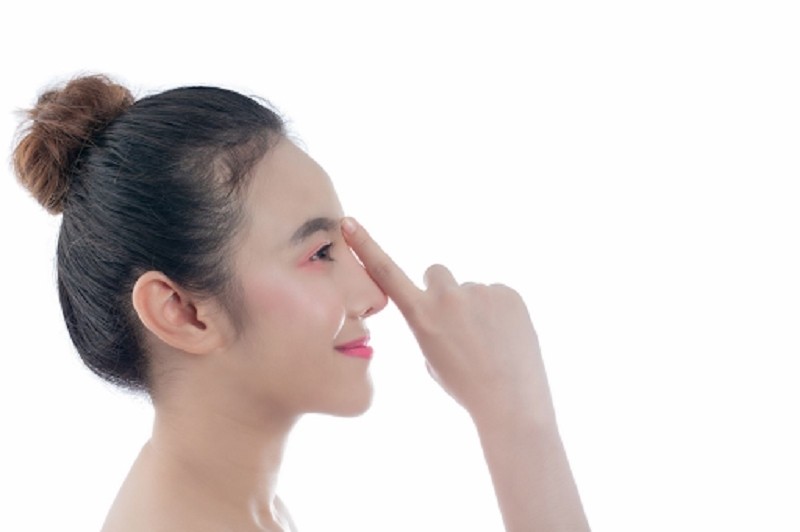
The article above just provided an answer to the question can I eat eggs after nose surgery. In general, to ensure the recovery process after nose surgery goes smoothly and achieves the best results, it is essential to avoid eating eggs. Follow your doctor's guidelines and pay attention to your diet to support your health and recovery process.
1. Can I eat eggs after nose surgery?
Nose surgery is a common cosmetic procedure, and the diet after surgery plays an important role in the recovery process. Eggs are a nutrient-rich food, especially high in protein, which has many health benefits. So the question arises: can I eat eggs after nose surgery?
The answer is: Doctors advise you not to eat eggs, especially duck eggs, balut, and quail eggs during the recovery period. Although eggs provide lecithin that helps detoxify the body, they can also have negative effects on the wound, such as increasing the risk of hypertrophic scars and causing the newly healed skin to be darker than the surrounding area. This can affect the aesthetics of the nose after surgery.
Therefore, adhering to a proper diet will help the wound heal quickly and achieve the best aesthetic results.

2. Why should I avoid eating eggs after nose surgery?
After answering the question can I eat eggs after nose surgery, let's look at the reasons why it is crucial to avoid eating eggs after nose surgery.
2.1 Nutritional reasons
Eggs are a source of high-quality protein, which is very beneficial for tissue regeneration. However, consuming too much protein in the early stages of recovery can stimulate the regeneration process too quickly. This may lead to uneven healing skin, compromising the aesthetic appearance of the face.
Some components in eggs can irritate the wound. When the wound is irritated, healing will slow down, potentially leading to infection or other complications.
2.2 Risk of swelling and inflammation
Eggs, especially chicken eggs, can increase inflammation levels if the body does not digest well after surgery. Eating eggs may cause prolonged swelling, affecting the aesthetic results of the surgery. Swelling can cause discomfort, pain, and reduce mobility in the nasal area. This not only affects health but also the patient's psychology during the recovery phase.
2.3 Impact on overall health
Eating eggs soon after surgery can lead to other risks such as allergies or inflammatory reactions, affecting overall health. Some people may experience symptoms like itching, rashes, or difficulty breathing. Therefore, during the recovery period, allergy can add stress to the body, slowing down the recovery process.
After surgery, the digestive system may be more sensitive than usual. Eating eggs can cause difficulty digesting, leading to issues such as bloating, indigestion, or even diarrhea. These issues not only cause discomfort but also diminish overall health.

3. When can I eat eggs after nose surgery?
After nose surgery, each person will have a different timeline for avoiding eggs. These depend on individual constitution and recovery ability, specifically:
For people with non-scar-prone constitution: If you belong to this group, the wound after nose surgery will heal faster. You can start incorporating eggs into your diet after about 3 weeks. However, when you start eating eggs, begin with small amounts and monitor your body's reactions. If there are no signs of irritation or discomfort, you may gradually increase your intake.
For those who are prone to scarring: If you are prone to hypertrophic or dark scars, avoid eating eggs for at least 1 month after surgery to avoid affecting the healing process. This helps minimize the risk of scar formation and supports creating more evenly toned healing skin, thus improving aesthetic results after surgery.
4. Foods to eat to support recovery after nose surgery
To promote wound healing after nose surgery, it is essential to provide the body with adequate nutrients. Here are the foods to add after nose surgery:
Protein-rich foods
Protein-rich foods are crucial for cell regeneration and wound healing support. They help build and repair tissues, strengthening the immune system. Foods to include are: lean meats (chicken, beef), fish (salmon, tuna), beans (green beans, black beans), milk and dairy products (yogurt, cheese).

Green vegetables and fruits
Green vegetables and fruits are rich in vitamins and minerals, especially vitamins C, A, and E. These vitamins help enhance the immune system and support the wound healing process. Leafy greens (cabbage, spinach,...) and fruits (oranges, kiwis, strawberries, avocados,...) are the foods you should add to your daily diet.

Seeds and whole grains
Seeds and whole grains provide energy, fiber, and various B vitamins necessary for the body, helping maintain health and energy during the recovery process. You should choose foods like: whole grains (oats, brown rice) and seeds (chia seeds, sunflower seeds) in daily meals during recovery after nose surgery.
Omega-3 rich foods
Omega-3 helps reduce inflammation and promote recovery, which is very beneficial for healing wounds. Salmon, flaxseeds, walnuts,... are foods rich in omega-3, so be sure to include them in your list of foods to consume during this period.

Easy-to-digest foods
Soft, easy-to-digest foods prevent the body from overworking during digestion, facilitating recovery. Some foods like: porridge, soup, mashed potatoes are delicious and suitable for you after nose surgery.
Water and natural juices
Drinking enough water and fruit juices helps maintain hydration for the body, supports the cell regeneration process, and boosts overall health. Make sure to add clean water and various fruit juices (orange juice, apple juice) to enhance your body's recovery capability.

5. Other important considerations after nose surgery
To promote the healing process of the wound after nose surgery, besides a healthy diet, you should also pay attention to the following considerations:
Wound hygiene: It is necessary to clean with saline carefully to avoid infection. Change the dressing 24 hours after surgery and monitor the wound's progress. If you notice any signs of abnormality (redness, swelling, pus), call your doctor immediately for timely intervention.
Use medication as prescribed: Use antibiotics, anti-inflammatory drugs, anti-edema, pain relief,..... as directed by your doctor.
Avoid washing your face and applying makeup too early: Avoid washing your face with running water and applying makeup too soon. You can use a clean, soft cloth to clean the face area but need to avoid direct contact with the wound area.
Avoid physical contact with the nasal area: Do not wear glasses, scratch, bump, or put pressure on the nose until the wound is completely healed.
Cold compress: You should apply a cold compress to the areas around the nose for the first 2 - 3 days after surgery to reduce swelling and bruising.
Do not remove the splint on your own: Do not remove the nasal splint on your own to avoid the nose becoming misaligned.
Avoid facial steaming and exercising: Do not go for facial steaming or exercise for at least 4 weeks after surgery to ensure the wound heals properly.

The article above just provided an answer to the question can I eat eggs after nose surgery. In general, to ensure the recovery process after nose surgery goes smoothly and achieves the best results, it is essential to avoid eating eggs. Follow your doctor's guidelines and pay attention to your diet to support your health and recovery process.
1. Can I eat eggs after nose surgery?
Nose surgery is a common cosmetic procedure, and the diet after surgery plays an important role in the recovery process. Eggs are a nutrient-rich food, especially high in protein, which has many health benefits. So the question arises: can I eat eggs after nose surgery?
The answer is: Doctors advise you not to eat eggs, especially duck eggs, balut, and quail eggs during the recovery period. Although eggs provide lecithin that helps detoxify the body, they can also have negative effects on the wound, such as increasing the risk of hypertrophic scars and causing the newly healed skin to be darker than the surrounding area. This can affect the aesthetics of the nose after surgery.
Therefore, adhering to a proper diet will help the wound heal quickly and achieve the best aesthetic results.

2. Why should I avoid eating eggs after nose surgery?
After answering the question can I eat eggs after nose surgery, let's look at the reasons why it is crucial to avoid eating eggs after nose surgery.
2.1 Nutritional reasons
Eggs are a source of high-quality protein, which is very beneficial for tissue regeneration. However, consuming too much protein in the early stages of recovery can stimulate the regeneration process too quickly. This may lead to uneven healing skin, compromising the aesthetic appearance of the face.
Some components in eggs can irritate the wound. When the wound is irritated, healing will slow down, potentially leading to infection or other complications.
2.2 Risk of swelling and inflammation
Eggs, especially chicken eggs, can increase inflammation levels if the body does not digest well after surgery. Eating eggs may cause prolonged swelling, affecting the aesthetic results of the surgery. Swelling can cause discomfort, pain, and reduce mobility in the nasal area. This not only affects health but also the patient's psychology during the recovery phase.
2.3 Impact on overall health
Eating eggs soon after surgery can lead to other risks such as allergies or inflammatory reactions, affecting overall health. Some people may experience symptoms like itching, rashes, or difficulty breathing. Therefore, during the recovery period, allergy can add stress to the body, slowing down the recovery process.
After surgery, the digestive system may be more sensitive than usual. Eating eggs can cause difficulty digesting, leading to issues such as bloating, indigestion, or even diarrhea. These issues not only cause discomfort but also diminish overall health.

3. When can I eat eggs after nose surgery?
After nose surgery, each person will have a different timeline for avoiding eggs. These depend on individual constitution and recovery ability, specifically:
For people with non-scar-prone constitution: If you belong to this group, the wound after nose surgery will heal faster. You can start incorporating eggs into your diet after about 3 weeks. However, when you start eating eggs, begin with small amounts and monitor your body's reactions. If there are no signs of irritation or discomfort, you may gradually increase your intake.
For those who are prone to scarring: If you are prone to hypertrophic or dark scars, avoid eating eggs for at least 1 month after surgery to avoid affecting the healing process. This helps minimize the risk of scar formation and supports creating more evenly toned healing skin, thus improving aesthetic results after surgery.
4. Foods to eat to support recovery after nose surgery
To promote wound healing after nose surgery, it is essential to provide the body with adequate nutrients. Here are the foods to add after nose surgery:
Protein-rich foods
Protein-rich foods are crucial for cell regeneration and wound healing support. They help build and repair tissues, strengthening the immune system. Foods to include are: lean meats (chicken, beef), fish (salmon, tuna), beans (green beans, black beans), milk and dairy products (yogurt, cheese).

Green vegetables and fruits
Green vegetables and fruits are rich in vitamins and minerals, especially vitamins C, A, and E. These vitamins help enhance the immune system and support the wound healing process. Leafy greens (cabbage, spinach,...) and fruits (oranges, kiwis, strawberries, avocados,...) are the foods you should add to your daily diet.

Seeds and whole grains
Seeds and whole grains provide energy, fiber, and various B vitamins necessary for the body, helping maintain health and energy during the recovery process. You should choose foods like: whole grains (oats, brown rice) and seeds (chia seeds, sunflower seeds) in daily meals during recovery after nose surgery.
Omega-3 rich foods
Omega-3 helps reduce inflammation and promote recovery, which is very beneficial for healing wounds. Salmon, flaxseeds, walnuts,... are foods rich in omega-3, so be sure to include them in your list of foods to consume during this period.

Easy-to-digest foods
Soft, easy-to-digest foods prevent the body from overworking during digestion, facilitating recovery. Some foods like: porridge, soup, mashed potatoes are delicious and suitable for you after nose surgery.
Water and natural juices
Drinking enough water and fruit juices helps maintain hydration for the body, supports the cell regeneration process, and boosts overall health. Make sure to add clean water and various fruit juices (orange juice, apple juice) to enhance your body's recovery capability.

5. Other important considerations after nose surgery
To promote the healing process of the wound after nose surgery, besides a healthy diet, you should also pay attention to the following considerations:
Wound hygiene: It is necessary to clean with saline carefully to avoid infection. Change the dressing 24 hours after surgery and monitor the wound's progress. If you notice any signs of abnormality (redness, swelling, pus), call your doctor immediately for timely intervention.
Use medication as prescribed: Use antibiotics, anti-inflammatory drugs, anti-edema, pain relief,..... as directed by your doctor.
Avoid washing your face and applying makeup too early: Avoid washing your face with running water and applying makeup too soon. You can use a clean, soft cloth to clean the face area but need to avoid direct contact with the wound area.
Avoid physical contact with the nasal area: Do not wear glasses, scratch, bump, or put pressure on the nose until the wound is completely healed.
Cold compress: You should apply a cold compress to the areas around the nose for the first 2 - 3 days after surgery to reduce swelling and bruising.
Do not remove the splint on your own: Do not remove the nasal splint on your own to avoid the nose becoming misaligned.
Avoid facial steaming and exercising: Do not go for facial steaming or exercise for at least 4 weeks after surgery to ensure the wound heals properly.

The article above just provided an answer to the question can I eat eggs after nose surgery. In general, to ensure the recovery process after nose surgery goes smoothly and achieves the best results, it is essential to avoid eating eggs. Follow your doctor's guidelines and pay attention to your diet to support your health and recovery process.
REGISTER NOW
REGISTER NOW
REGISTER NOW



Author
Dr. Huynh Cong Thanh
Dr. Huỳnh Công Thành has over 12 years of experience in the field of aesthetics and skin treatment for more than 100,000 clients.
See more
See more
You may be interested

Beauty secrets
Can I eat snails after getting a nose job?

Beauty secrets
Can I eat snails after getting a nose job?

Beauty secrets
Can I eat snails after getting a nose job?

Beauty secrets
Can I eat duck after nose surgery? How long until I can eat?

Beauty secrets
Can I eat duck after nose surgery? How long until I can eat?

Beauty secrets
Can I eat duck after nose surgery? How long until I can eat?

Beauty secrets
Can I Drink Milk Tea After Nose Surgery? Experts Explain

Beauty secrets
Can I Drink Milk Tea After Nose Surgery? Experts Explain

Beauty secrets
Can I Drink Milk Tea After Nose Surgery? Experts Explain

Beauty secrets
Is it possible to drink soybean milk after nose lifting? How long until I can drink it?

Beauty secrets
Is it possible to drink soybean milk after nose lifting? How long until I can drink it?

Beauty secrets
Is it possible to drink soybean milk after nose lifting? How long until I can drink it?

Beauty secrets
Can I eat chicken after nose job? How long should I avoid eating chicken?

Beauty secrets
Can I eat chicken after nose job? How long should I avoid eating chicken?

Beauty secrets
Can I eat chicken after nose job? How long should I avoid eating chicken?

Beauty secrets
Can I eat instant noodles after nose lifting? Will it have any effect?

Beauty secrets
Can I eat instant noodles after nose lifting? Will it have any effect?

Beauty secrets
Can I eat instant noodles after nose lifting? Will it have any effect?


